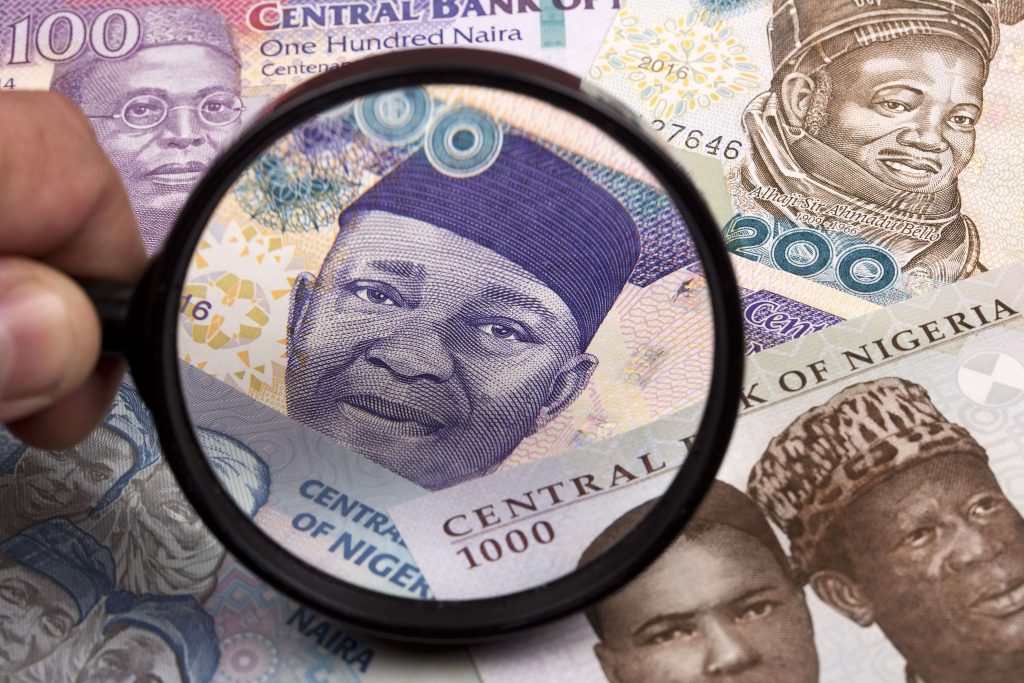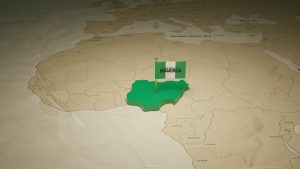The Central Bank of Nigeria (CBN), on 25 October 2022, announced that it would redesign the four higher value notes of the naira (₦100, ₦200, ₦500 and ₦1,000). According to the CBN, the new banknotes will become legal tender on 15 December 2022, while the old notes will remain in circulation until 31 January 2023 (a 90-day period from the day it was announced) after which they lose their status as legal tender.
The CBN clearly articulates the rationale behind its sudden decision, citing the need to address several challenges currently confronting the execution of its currency management function, stating that “these challenges have continued to escalate in scale and sophistication with attendant and unintended consequences for the integrity of both the CBN and the country”. The challenges include:
- The significant hoarding of banknotes by members of the public
- The worsening shortage of clean and fit banknotes
- The increasing ease of currency counterfeiting
Data from the CBN points to significant hoarding of naira notes by members of the public, as 84.5% (₦2.73 trillion) of the currency in circulation is outside the vaults of the commercial banks. The CBN also considered the value of currency in circulation, which had spiked by 121% since 2015.
The sudden announcement of the redesign project surprised the financial markets, analysts and even the finance minister, triggering a wave of uncertainty and heightening speculative activity against the naira in the parallel market as many hoarders rushed to offload their naira stockpiles. Within 10 days of the announcement, the naira lost 16.3% to an all-time low of ₦890/$ as at November 4th, 2022. Thus, the spread between the official (₦442/$) and parallel market rates widened to 101% – the highest ever. While the dust from the policy announcement is yet to settle, the naysayers believe that the project amounts to a mere cosmetic exercise and that the CBN should be more concerned with its core functions of maintaining price and exchange rate stability.
The Case for a Redesign
Perhaps the most compelling argument put forward by the CBN borders on the need to combat insecurity. The CBN argues that “the incidents of terrorism and kidnapping would be minimised as access to the large volume of money outside the banking system used as a source of funds for ransom payments will begin to dry up”. The policy, implemented effectively, will render the cash stockpiled by kidnappers and bandits unusable. The short notice and 90-day window also give them very limited time for the development of ingenious counter strategies.
The CBN has also outlined new conditions for cash deposits which include that banks must only accept cash from customers with full KYC and bank accounts; cash must only be paid into customers’ accounts; cash must not be paid into ledgers or suspense accounts; a ₦5 million and ₦50 million monthly deposit limits for new and existing bank accounts respectively while the CBN and Economic and Financial Crimes Commission (EFCC) will also be tracking all deposits. The CBN also plans to monitor individuals with multiple accounts via the
Bank Verification Number (BVN) and ensure that cash hoarders are unable to deposit most of their illicit funds into the banking system.

In addition, the CBN will no longer print large quantities of cash as a new cashless policy will be announced in January 2023. The new cashless policy is anticipated to place Nigeria firmly on the path to operating a predominantly cashless economy by driving the increased use of digital banking channels. The currency redesign is also expected to be complemented by the increased minting of the central bank digital currency (CBDC) – the eNaira – which will also further drive the cashless policy. One of the primary goals of digital currency is to deepen financial inclusion (currently at 64%). It aims to bring millions of unbanked Nigerians into the banking system by allowing them to make payments directly from an e-wallet on their phones, without the need for intermediaries. The eNaira is also designed to facilitate cross-border trade and inbound remittances from Nigerians in the diaspora by offering a cheaper and more convenient method of payment.
Reining in cash outside the banking system should bolster the efficacy of monetary policy, boost banking sector deposits and credit to the private sector (estimated at ₦40.2 trillion as at 31 August 2022) and is also anticipated to limit the activities of currency speculators, and by implication, curb imported inflation. The timing of the exercise ensures also that it should be completed before the general elections scheduled for February 2023 which means that those who have stockpiled cash for vote-buying will probably need to become more innovative with their methods as voters will not accept the illegal tender.
The Federal Reserve Bank of the United States of America (USA) is known to periodically redesign the US dollar “to stay ahead of counterfeiting threats and keep counterfeiting levels low”. This is aimed at making life difficult for increasingly innovative currency forgers by introducing new security features. Nigeria last redesigned the naira 20 years ago.
The Case against a Redesign
The arguments being peddled by the opposing camp border mostly on the impracticality, cost, timing and effectiveness of the project. The seeming free fall of the naira in response to the announcement, which the CBN should have anticipated, has underscored the worries of the naysayers and even elicited calls from the International Monetary Fund (IMF) to the CBN to consider providing more targeted support to families and businesses. The IMF also urged the CBN to tread cautiously to avoid any missteps that could undermine confidence in the financial system.
Claims by the CBN that the policy will taper inflation might be a bit exaggerated. Currency in circulation currently accounts for a mere 6.5% of Money Supply (M3) – ₦49.9 trillion – as against 9.9% in 2012. So, while we have witnessed a decline in the proportion of the currency in circulation relative to money supply over the years, we have seen a surge in electronic payments, particularly in the last five years, by 386% to ₦272 trillion in 2021 – to now account for circa 94% of total transactions. This puts huge question marks on the widely held belief that cash in circulation is a major driver of inflation.
Figure 1: Currency in Circulation vs Currency outside Banks (₦’Million)
 Source: CBN Money and Credit Statistics
Source: CBN Money and Credit Statistics
How does the CBN call back ₦3.2 trillion in 90 days? The argument here is that the 90-day window is simply too brief to complete the project as banks would be unable to handle the massive pressure that the rush to deposit old notes would trigger. Rising energy costs (diesel) are also compelling commercial banks, to stagger their operating hours at some branches – opening for limited periods on some days and, in other cases, only a few days per week – in an effort to cut costs. This reduces the chance of opening more hours to accommodate a possible rush by depositors. Many anticipate an extension to the project’s deadline, probably beyond February 2023, giving room for the use of old notes for monetary inducement during the elections.
The policy could also prove to be disruptive to economic activity particularly with holiday festivities on the horizon, as some traders could reject old naira notes which they know will cease to be legal tender in just a couple of weeks. While the law clearly allows the CBN to act independently, claims by the finance minister of only hearing about the announcement in the news betrays a lack of policy co-ordination which could undermine investor confidence.
Insecurity Tips the Scale
How much more effective would monetary policy tools become in combating inflation, even if the redesign project somehow led to the return of all currency in circulation to the banking system? Is the steep depreciation of the naira and the accompanying ripple effect on the economy a reasonable price to pay for a more effective monetary policy? Many would beg to differ.
The ‘argument for’, which hinges crucially on the project’s capacity to deal a fatal blow to bandits and kidnappers, becomes difficult to dismiss when weighed against the magnitude of the current wave of insecurity and its impact on Nigeria’s near-term economic outlook. Is a 90-day currency redesign project too much of a price to pay for curbing insecurity? While the cost implications of the project remain uncertain, it is likely to pale in significance to the ever-increasing federal spending devoted to containing insecurity, and the modest success achieved. At the moment, the aforementioned question is akin to questioning whether the project is too much of a price to pay to increase productivity and economic output, which would reduce inflation and unemployment, boosting investor confidence, and attracting increased foreign investment. No is the resounding response!
Can the CBN monitor illicit financial flows and prevent further speculative activity on the foreign exchange market, as well as track the movement of cash by BDC operators? This is a major concern for the vast majority of analysts, who believe that even if the CBN possesses the will and desire to do so, it lacks the capacity. While the project has the potential to turn the tide in the fight against insecurity, a crucial question is: how does the CBN (or anybody else) prevent cash hoarding, kidnapping, and banditry once the new currency is in place. In the coming months, the answers will become apparent.






